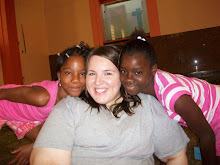
I just finished rereading a book by Peter Rollins called How (not) to Speak of God. The first time I read it through I felt like there were some things I was missing so I wanted to go through it again but I really was incredibly blessed by the book. Below I've listed some of the most significant passages that I found to be helpful in regards to faith and doubt and the church.
"Christian faith, it could be said, is born in the aftermath of God." p.1
" God's interaction with the world is irreducible to understanding precisely because God's presence is a hyper- presence. Hyper- presence is a term that refers to a type of divine saturation that exists in the heart of God's presence. It means that God not only overflows and overwhelms our understanding but also overflows and overwhelms our experience. " p. 23
" We must speak and yet we must maintain our silence.we must maintain distance amidst the proximity of God, and we must worship while being careful not to make God the object of our worship: for God is the subject before whom we worship. This sire of uncertainty and unknowing is often a frightening place to dwell, but while the comfort provided by religion is placed into a certain distress by the idea of doubt, this distress, too, is not without a certain comfort, For while we do not grasp God, faith is born amidst the feeling that God grasps us." pg. 30
" In contrast to the view that religious doubt is something to reject, fear or merely tolerate, doubt not only can be seen as an inevitable aspect of our humanity but also can be celebrated as a vital part of faith. Doubt has often been disparaged, or merely tolerated, because it is seen as leading to an inert stat of undecidability in which nothing can be believed or acted upon. Yet in realty it is only in the midst of undecidability that real decisions can be made." pg. 33
"In Jesus I see not merely an individual who acted as a catalyst for a new religious movement, but also a subversive prophet who signaled the end of all religious movements. To be part of the Christian religion is to simultaneously hold that religion lightly." (p. 44)
"The only religious knowledge worth anything is love." pg. 66
"the same church is experienced in two markedly different ways that depend on the burdens each person brings to it. One church may help one person to become more Christlike while oppressing another... Rather than encouraging someone to join our community (whatever our community happens to be) we ought to be trying to help people to find the right community that will aid them in their further conversion." pg. 67
My eyes have really been opened to the ways that people experience faith differently. For some it is private, others public witness is more essential, some are questioning and others comforted by their walk with the Lord. It's really easy to get caught up in believing that our way of experiencing faith is the best way, but in the past few months I've really grown to appreciate all kinds of perspectives. I think the church needs both sides of every coin. I have to admit, I'm not always good at doing this. I often discredit my brothers and sisters who fall into a more sunny category of Christianity than I do, but I've learned that I have to respect their position. This book was helpful for me because, religiously speaking, I'm a doubter. I often wish my faith experience were different, more simple perhaps, but its not. Some very important people in my life, and this book, helped me realize that that's ok. Which I have to confess was a gigantic relief. I used to frequently wonder if there would be any mercy left for me in God's heart because I was so unsure. And while I still sometimes wish I weren't so tormented by my decision of faith, I no longer feel guilty- which is a huge blessing.


No comments:
Post a Comment